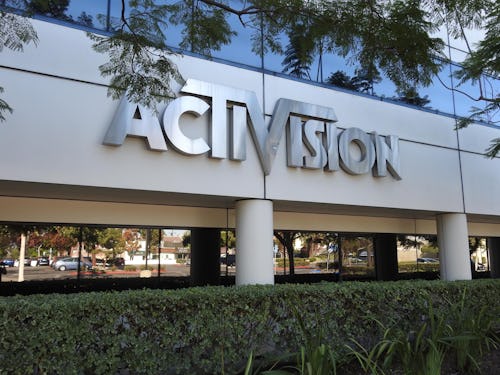
This week, a judge signed off on a settlement between gaming publisher Activision Blizzard and the U.S. Equal Employment Opportunity Commission, which is a federal government agency. Though this would appear to close the book on the beleaguered company's federal legal woes, it still faces multiple lawsuits, including one from the California Department of Fair Employment and Housing, which first made headlines last year.
According to the Washington Post, a representative from California's DFEH asked the judge to delay approval of the settlement, but that request was denied. Former employees of Activision Blizzard must submit a claim of harassment or discrimination to the EEOC in order to receive the funds. Furthermore, those employees cannot "double dip" by joining both the federal and California state cases, unless they have claims that aren't covered by the EEOC settlement, such as inequity of pay.

After the announcement of the settlement, controversial Activision Blizzard CEO — who was at one point rumored to leave the company after it was acquired by Microsoft in a record-setting deal — said that the company will become "a model for the industry." An EEOC spokeswoman told the Washington Post that they were "pleased with the outcome" of the settlement.
The cavalcade of lawsuits first began when DFEH filed a suit against Activision Blizzard in July 2021, accusing the company of having a "frat boy" work environment. DFEH and EEOC have publicly squabbled over their differing approaches to the suits. Some Activision Blizzard employees have consistently criticized the $18 million deal since it was first put forth last September, with one ally calling it "woefully inadequate." It's unclear how this settlement might impact the pending lawsuits against Activision Blizzard.
While Activision Blizzard has received the brunt of the attention from the gaming media for its toxic culture, it’s far from the only notable studio subject to such claims. Last December, League of Legends studio Riot Games settled a similar suit with DFEH for $100 million.







